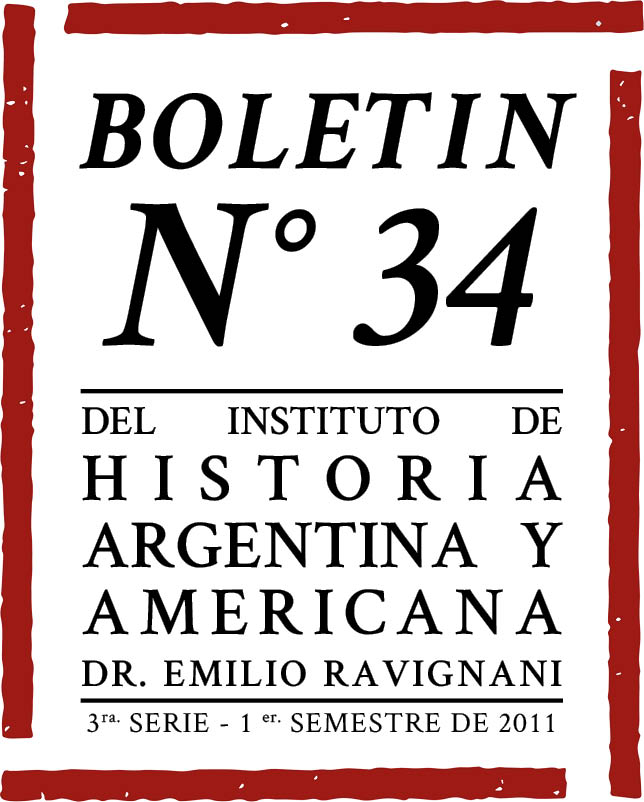¿Qué hacer con la calle? La definición del espacio público porteño y el edicto policial de 1932
Abstract
Since at least the 1850s, the streets of Buenos Aires have served as a complementary space for voters’ involvement, which was considered valid under certain circumstances. However, the right of assembly was not the subject of a constitutional and legislative definition until 1949. This situation generated a relative conceptual and normative uncertainty with respect to its legitimacy and specific provisions. In May 1932, a police edict on public meetings, driven by the executive branch of government, tried to define and prescribe the rules of the political game in the streets of Buenos Aires. We shall, therefore, take this regulation on the right of assembly, promoted by the government of A. P. Justo, as a way to enter a much longer process whose conflicts were condensed and reformulated in the early 1930s.Downloads
Copyright (c) 2011 Boletín del Instituto de Historia Argentina y Americana Dr. Emilio Ravignani

This work is licensed under a Creative Commons Attribution-NonCommercial 4.0 International License.
The copyright is transferred to the Boletín, but the authors may retrieve them and reproduce their work in other media or formats by means of a written request to the Editorial Committee. In such cases, the Boletín will be cited as the first publication of the work.
The works are licensed under a Creative Commons Attribution-NonCommercial 4.0 International License, which allows others to share the work with an acknowledgment of their authorship and initial publication in this journal.
Also, by written request to the Editorial Committee of the Boletín, the authors may separately establish additional agreements for the non-exclusive distribution of the version of the work published in this journal (for example, placing it in an institutional repository or publishing it in a book), with an acknowledgement of its initial publication here. No commercial uses are allowed.



















